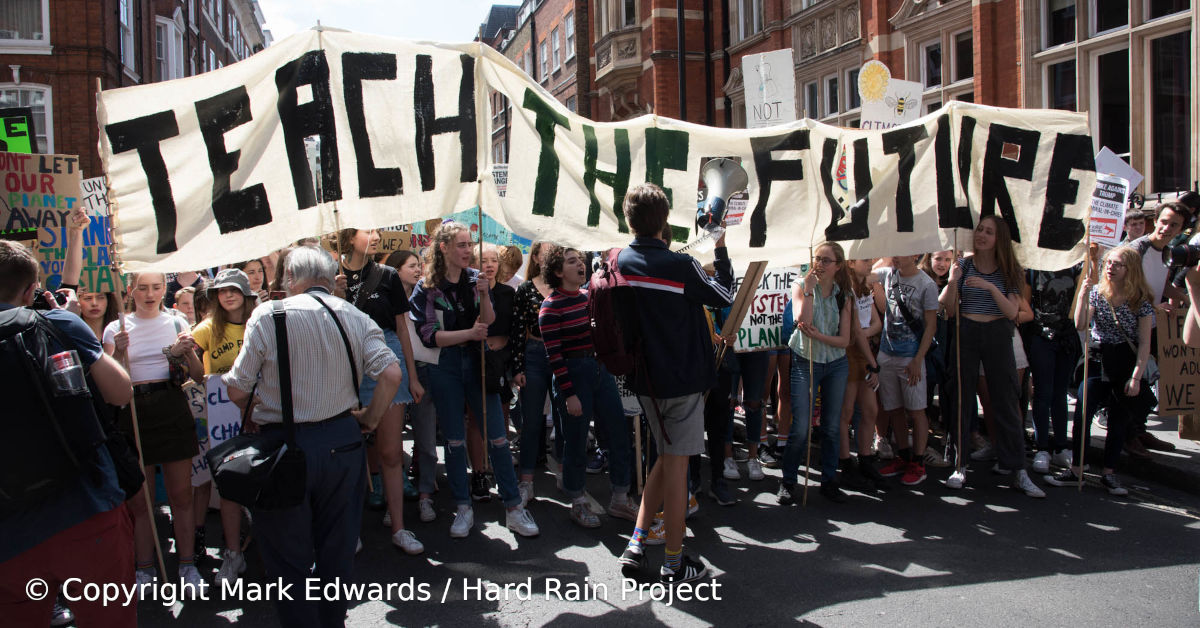First, a short note from our CEO, Tracey West.
“We’ve highlighted the great work of Teach the Future before and I don’t doubt we’ll be doing it again.
It’s a pretty poor show that students are having to form amazing organisations like this, to ask for the education they urgently need!
If you’re not aware of their plight, take a look at what they’ve achieved so far in a recent update from Tess and their Team.
It gets an A* from me.”

From Teach The Future:
The Education (Environment and Sustainable Citizenship) Bill has just had its second reading in the House of Lords, and Teach the Future, a campaign to make education on the climate crisis mainstream in the curriculum, is campaigning in support of this bill, which Lord Jim Knight brought forward. The Minister of the Department for Education unfortunately did not support the bill during the second reading, but we hope that the campaign can gain the support of the Department for Education before the committee stage of the bill. The bill would bring forward more suitable climate education by making three fundamental changes to the Education Act 2002:
- By revising what is seen as a “balanced and broadly based curriculum” to be a curriculum that “instils an ethos and ability to care for oneself, others and the natural environment, for present and future generations.”
This amendment would ensure that showing care for other people and the planet is an essential part of young people’s learning, including showing concern for people around the world, which is an integral part of learning about and pushing for climate justice. - It makes the provision of education on sustainable citizenship part of the curriculum for all secondary school pupils, with guidance given by the Secretary of State.
- It makes changes to the meaning of the subject “citizenship” in Key Stage 1 to add lessons that promote learning about protecting and restoring natural environments. This addition to the Citizenship course would include learning about the climate emergency and climate justice, but it would not be limited to this.
This change to the meaning of citizenship would ensure that students in this lesson would learn about the deterioration of natural environments and how to protect and restore them, bringing up how to take care of environments and people living in them.
These provisions would be a massive step forward in teaching students about the climate crisis and climate justice, promoting care for the environment and other people concerning the climate crisis. Because of the importance of this bill, Teach the Future has organised a letter for other organisations to sign, to ask Gavin Williamson to support the Education (Environment and Sustainable Citizenship) Bill. Many organisations have already become signatories of this letter. We are sending this blog out to show our support and gather more organisations that will sign the letter that Teach the Future will send before the Committees stage of the bill in the House of Commons. So, if you are from an organisation that would like to sign the letter, please email [email protected] with the signatory’s name, their role in the organisation, and the organisation’s name, with the subject line “Education (Environment and Sustainable Citizenship) Bill letter”.
The Word Forest Organisation is supporting this campaign because we believe that education is critical for positive change. Sustainability and protection of the environment in all its guises become more important by the day – it is only right that this should be included in the curriculum as a matter of course. After all, the future rests in the hands of our children.





